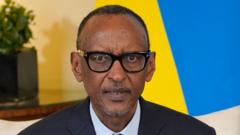In a multilingual society like Belgium, language norms can generate unexpected friction. A recent incident involving a train attendant in Vilvoorde, Flanders, showcased this complexity and ignited a dispute over linguistic etiquette.
During a busy rush hour, train attendant Ilyass Alba greeted passengers with "goeiemorgen" in Dutch and "bonjour" in French. While this act of bilingualism might have appeared courteous to some, it provoked an unhappy reaction from a Dutch-speaking commuter. The individual confronted Mr. Alba, insisting that "bonjour" was inappropriate and that the service should adhere to the Dutch language convention within the predominantly Dutch-speaking region of Flanders.
The exchange quickly escalated, with Mr. Alba attempting to clarify the situation in French, further inflaming tensions. Ultimately, the discontented passenger lodged a complaint with Belgium's Permanent Commission for Linguistic Control (PCLC) regarding Mr. Alba's bilingual approach.
Five months later, the commission responded, affirming the complaint as “well founded”. Their ruling, reported by the Dutch-language newspaper Nieuwsblad, underscored the legal obligation for the train attendant to engage with passengers in Dutch, as stipulated by Belgium's language administration laws. “As soon as he knows the traveler’s language (French or Dutch), he will respond in that language (French or Dutch),” the commission advised.
This incident not only illustrates the intricacies of linguistic policy enforcement in Belgium but also reflects broader societal discussions about identity, rights, and the fluidity of language use in a diverse environment. As Belgium continues to grapple with its multilingual character, such episodes reveal persistent friction that lies beneath the surface of daily interactions.





















